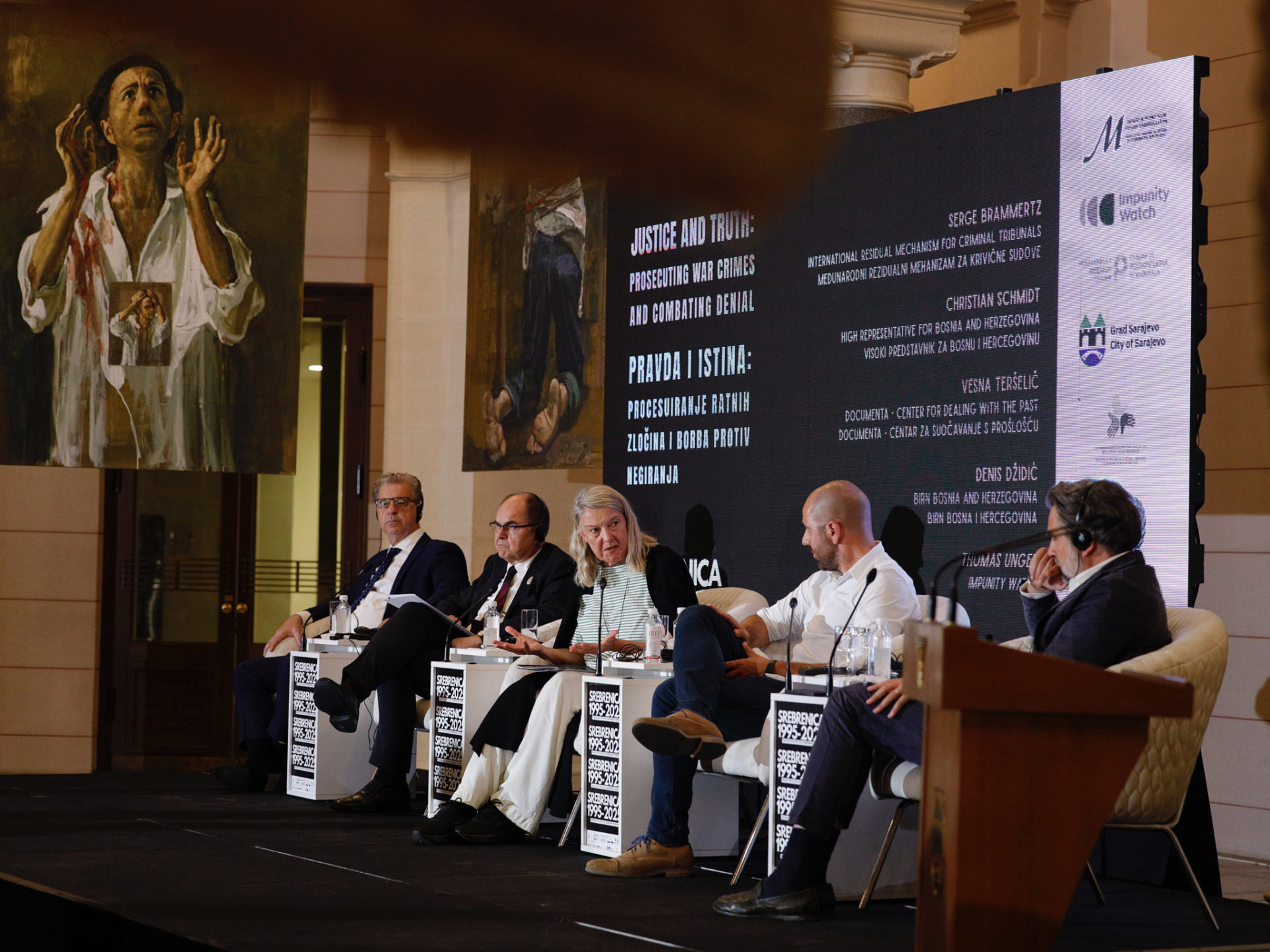
Establishing criminal responsibility before international and national courts for the Srebrenica genocide and the war crimes committed in Bosnia and Herzegovina during the 1990s would be an impossible mission without the survivors.
Their immeasurable contribution underscores the imperative to continue to prosecute those responsible, as well as those who deny the established facts of these atrocities and glorify war criminals. At the international conference “Srebrenica 1995-2025: Dealing with the Past,” held on July 8 in Sarajevo, education was emphasized as a means to encourage acceptance of these facts, thereby building social cohesion and sustainable peace in the region.
“Srebrenica 1995-2025: Dealing with the Past” was organized by the Post-Conflict Research Center, the City of Sarajevo, Sarajevo’s International Criminal Tribunal for the former Yugoslavia (ICTY) Center, the Movement of the Mothers of the Srebrenica and Žepa Enclaves, the International Residual Mechanism for Criminal Tribunals (IRMCT), the Western Balkans Coalition for Genocide and Mass Atrocity Crimes Prevention, and the Dutch organization Impunity Watch.
“Without daily interactions with survivors, victims, none of the individuals we have managed to convict would have been convicted. The victims’ participation in the trials was really massive and without it, it would have been mission impossible,“ said Serge Brammertz, chief prosecutor of the International Residual Mechanism for Criminal Courts.
At the panel “Justice and Truth: Prosecuting War Crimes and the Combating Denial,” Prosecutor Brammertz expressed concern about the increasingly frequent denial of crimes and the glorification of war criminals. “I often wonder why it is that the glorification of war criminals and denial is much more prevalent today than when I started this job in 2008,” he said, answering questions from the moderator, Thomas Unger from Impunity Watch.
“Giving up is obviously not a solution. And, personally, I’m very much in favor of legislation punishing this kind of behavior, as we have seen that solutions on a voluntary basis are not working. How can we address this in the future? As has been said many times – education is the main tool,” he emphasized.
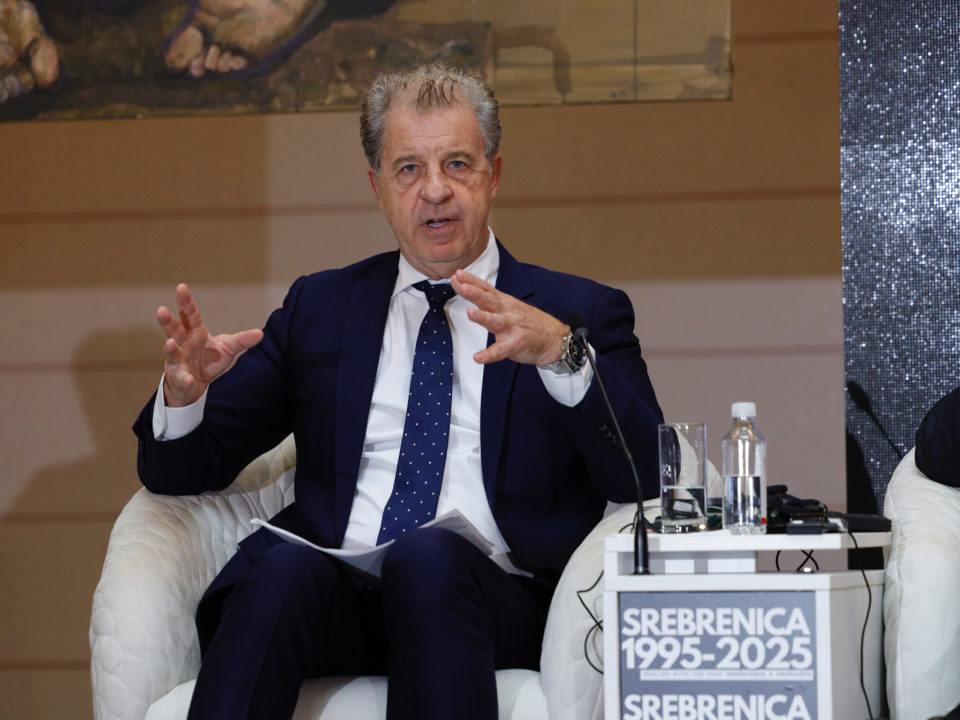
Brammertz highlighted the problem of different school systems and conflicting versions of history in Bosnia and Herzegovina. “If you cannot agree on the wrongdoings of the past, how can you determine a joint future together, as a community? So, it remains a very fragile issue, and I find it extremely disappointing, if not irresponsible, that politicians in the region are putting a heavy burden on the shoulders of the new generations,” said the chief prosecutor.
He also observed that regional cooperation in the prosecution of war crimes is poor. “It is extremely difficult to understand how we can be living in a part of the world where hundreds of individuals who allegedly are responsible for the worst crimes here are living not far from each other, with nothing being done, or very little being done, by their national authorities,“ said Brammertz.
He announced that prosecutors from the region will meet for the first time in five years in September, probably in Croatia. “I am cautiously optimistic that a new dynamic will be created, even though we are still far from satisfactory cooperation,” Brammertz concluded.
In a video address, Bekim Blakaj, executive director of the Humanitarian Law Center of Kosovo, highlighted the challenges in prosecuting those responsible for war crimes, as well as the ubiquitous denial of already established facts about the crimes committed in Kosovo.
“Crime Cannot Be Turned into Heroism”
High Representative in BiH Christian Schmidt explained that 30 years ago, the intention of the international community was to establish a functional state – a framework in which reconciliation and social cohesion could grow. “We have to state that this was not fully successfully. If you look at the population distribution today in Bosnia-Herzegovina, you see that the ethnic distinction, so to speak, has grown,” said Schmidt.
He added that the international community cannot dictate the narrative on historical awareness – that, he emphasized, must happen within the region itself. “I have to say that there is not enough effort,” Schmidt stated.
He also emphasized that “a crime remains a crime and it cannot be changed into heroism.” He announced a conference planned for September or October to discuss the implementation of the Law on the Prohibition of Genocide Denial, and lauded the first verdict of the Court of Bosnia and Herzegovina for genocide denial in May as a positive step.
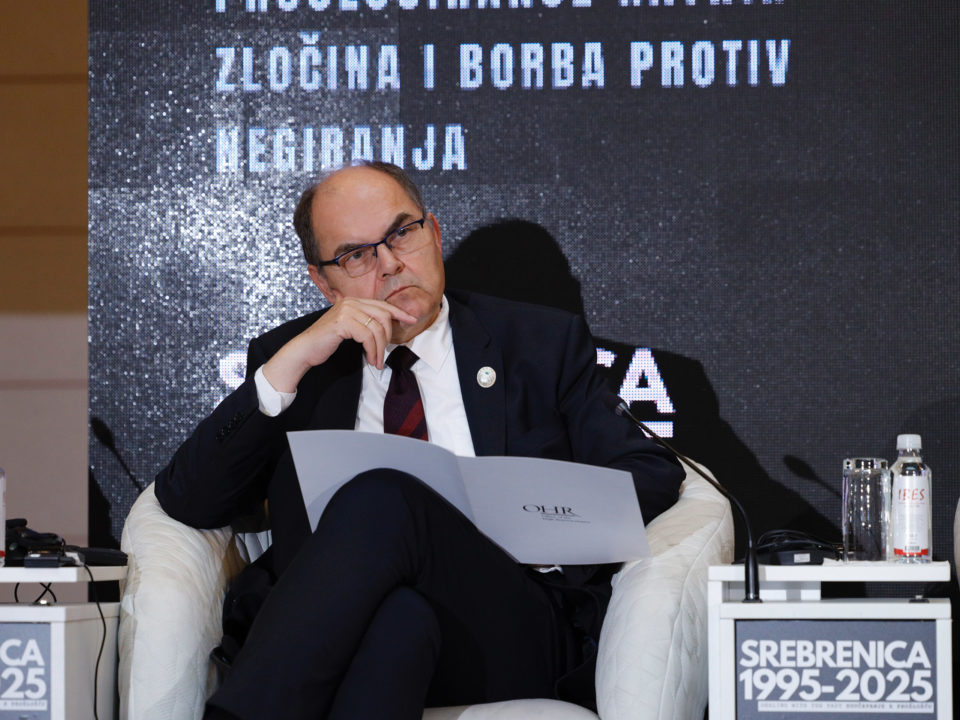
Speaking about the outreach program within the UN Resolution on Srebrenica, Schmidt emphasized the importance of including young people of all ethnicities. “I believe that it is possible to build a better future with the young generation. Don’t misunderstand this as meaning I would put aside the older generation. But we have a duty to ensure a positive transitional experience for the younger generation,” Schmidt concluded.
Reminiscing about Experiences of Solidarity
Vesna Teršelić, director of Documenta – the Center for Dealing with the Past in Croatia, said that denying the facts about war crimes is an enduring insult and re-traumatizes survivors. She emphasized the importance of organizations and survivors working together to localize memory – not only in well-known places of suffering like Srebrenica and Prijedor, but also in smaller communities where atrocities remained invisible. “Politicians in Croatia, but also in the region, often send unclear, ambivalent messages about the suffering of others. Most often, only one’s own victimhood is acknowledged. That’s why the opening of the Mothers of Srebrenica exhibition, which emphasizes the solidarity and resistance of those who helped, regardless of ethnicity, was extremely important to me,” Teršelić reflected.
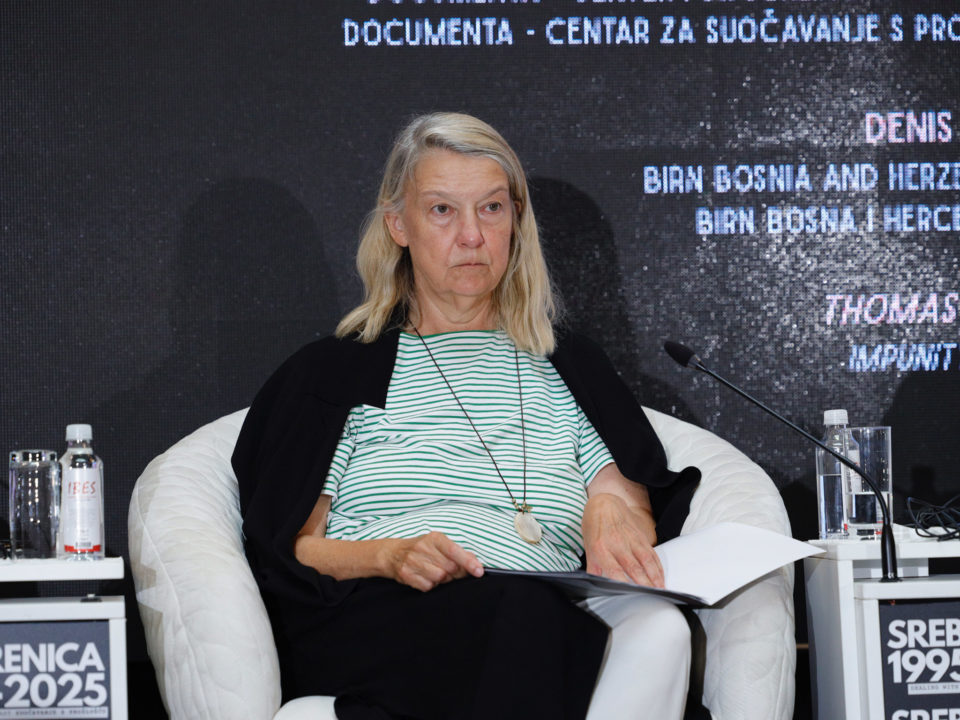
Denis Džidić, executive director of the Balkan Research Network (BIRN) in Bosnia and Herzegovina, pointed out that the media space in the country is trapped under political control, which makes it even more difficult to deal with the past. “Revisionism, glorification of war criminals, and divided narratives only deepen the wounds that have not healed,” said Džidić, citing the example of the abuse of the narrative about Srebrenica during the adoption of the UN resolution and the elections in Belgrade.
He explained that the international community, especially the European Union, must understand that without solving the issues of the past, there is no real progress: “You can build roads and institutions, but without truth and justice – that’s a failure.”
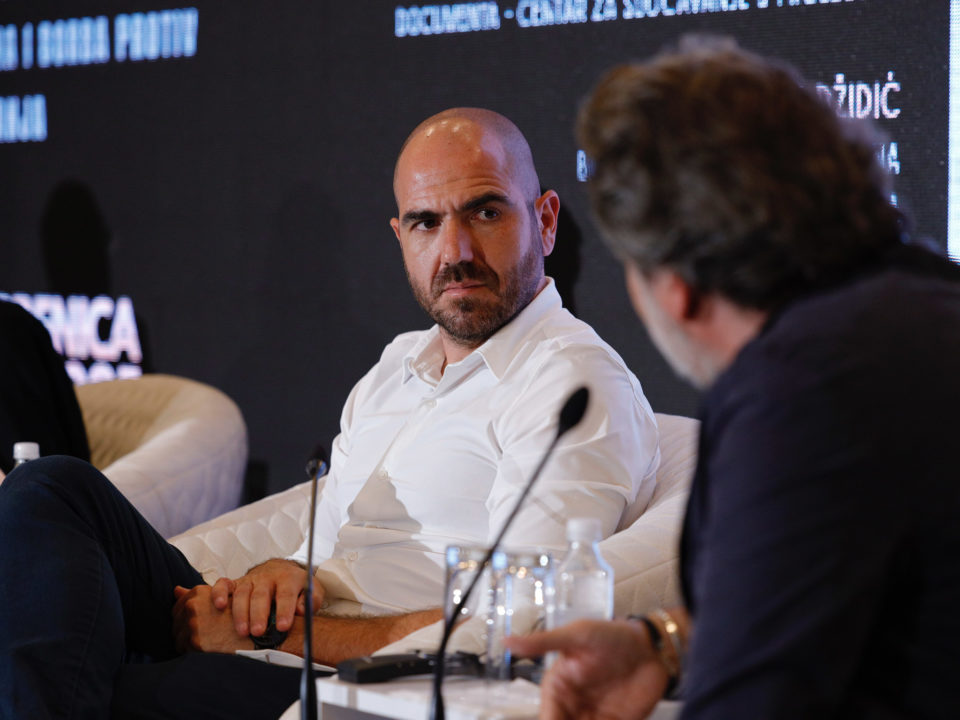
The concluding message of all the speakers was that without truth, responsibility, and education, there can be neither reconciliation nor real progress in the region.
_______________
The international conference “Srebrenica 1995–2025: Dealing with the Past” was held with the support of the National Endowment for Democracy (NED), the Rockefeller Brothers Fund, the Sigrid Rausing Trust, the United Nations in BiH, BH Telecom, the Public Enterprise Vijećnica, the organization Pro Peace, the regional project “EU Support to Confidence Building in the Western Balkans,” and the OSCE Mission to Bosnia and Herzegovina.






